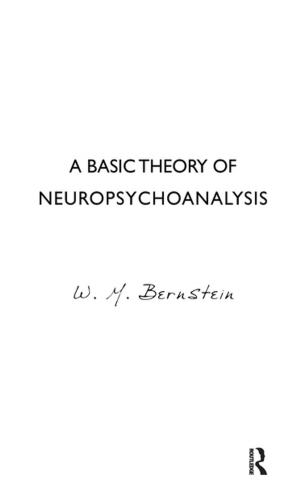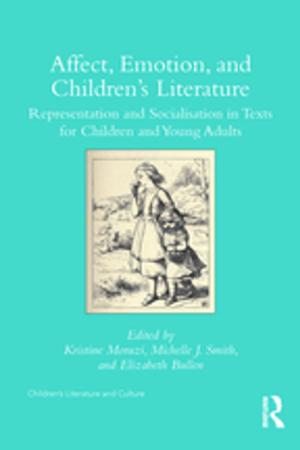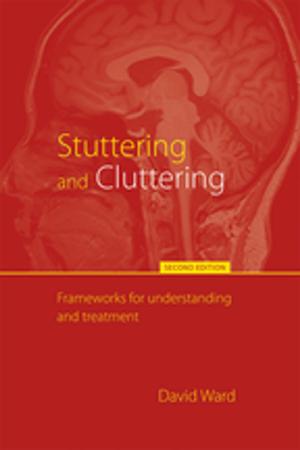Investigating Emotional, Sensory and Social Learning in Early Years Practice
Nonfiction, Reference & Language, Education & Teaching, Preschool & Kindergarten| Author: | Sarah Cousins, Wendy Cunnah | ISBN: | 9781317233336 |
| Publisher: | Taylor and Francis | Publication: | October 12, 2017 |
| Imprint: | Routledge | Language: | English |
| Author: | Sarah Cousins, Wendy Cunnah |
| ISBN: | 9781317233336 |
| Publisher: | Taylor and Francis |
| Publication: | October 12, 2017 |
| Imprint: | Routledge |
| Language: | English |
This book explores learning in the early years and emphasises the importance of learning in social contexts, through the senses and within close relationships. It moves away from the focus on ‘learning’ as the acquisition of knowledge, and instead emphasises the importance of personal, social and emotional development in early years education. Arguing that young children learn best when they are supported by reliable, engaged and attentive people who know them well, this book challenges readers to reflect on their own practice and think about how emotions play a part in young children’s learning and development.
Each chapter of this book discusses a different aspect of emotional, sensory and social learning, from philosophical perspectives on learning, leadership and inclusive practice, to the importance of promoting the development of children’s emotional intelligence, forming close attachments to children, and encouraging them to learn through their senses. The reader is provided with a wealth of ideas and examples for application in the classroom.
Numerous practical examples, reference to contemporary research, and the authors’ acknowledgement of the challenges faced by practitioners make this an inspiring and pertinent resource for new and experienced teachers and practitioners, as well as trainees and students in the fields of early years and primary education. Readers will develop the skills needed to engage in outstanding, learning-focused practice.
This book explores learning in the early years and emphasises the importance of learning in social contexts, through the senses and within close relationships. It moves away from the focus on ‘learning’ as the acquisition of knowledge, and instead emphasises the importance of personal, social and emotional development in early years education. Arguing that young children learn best when they are supported by reliable, engaged and attentive people who know them well, this book challenges readers to reflect on their own practice and think about how emotions play a part in young children’s learning and development.
Each chapter of this book discusses a different aspect of emotional, sensory and social learning, from philosophical perspectives on learning, leadership and inclusive practice, to the importance of promoting the development of children’s emotional intelligence, forming close attachments to children, and encouraging them to learn through their senses. The reader is provided with a wealth of ideas and examples for application in the classroom.
Numerous practical examples, reference to contemporary research, and the authors’ acknowledgement of the challenges faced by practitioners make this an inspiring and pertinent resource for new and experienced teachers and practitioners, as well as trainees and students in the fields of early years and primary education. Readers will develop the skills needed to engage in outstanding, learning-focused practice.















